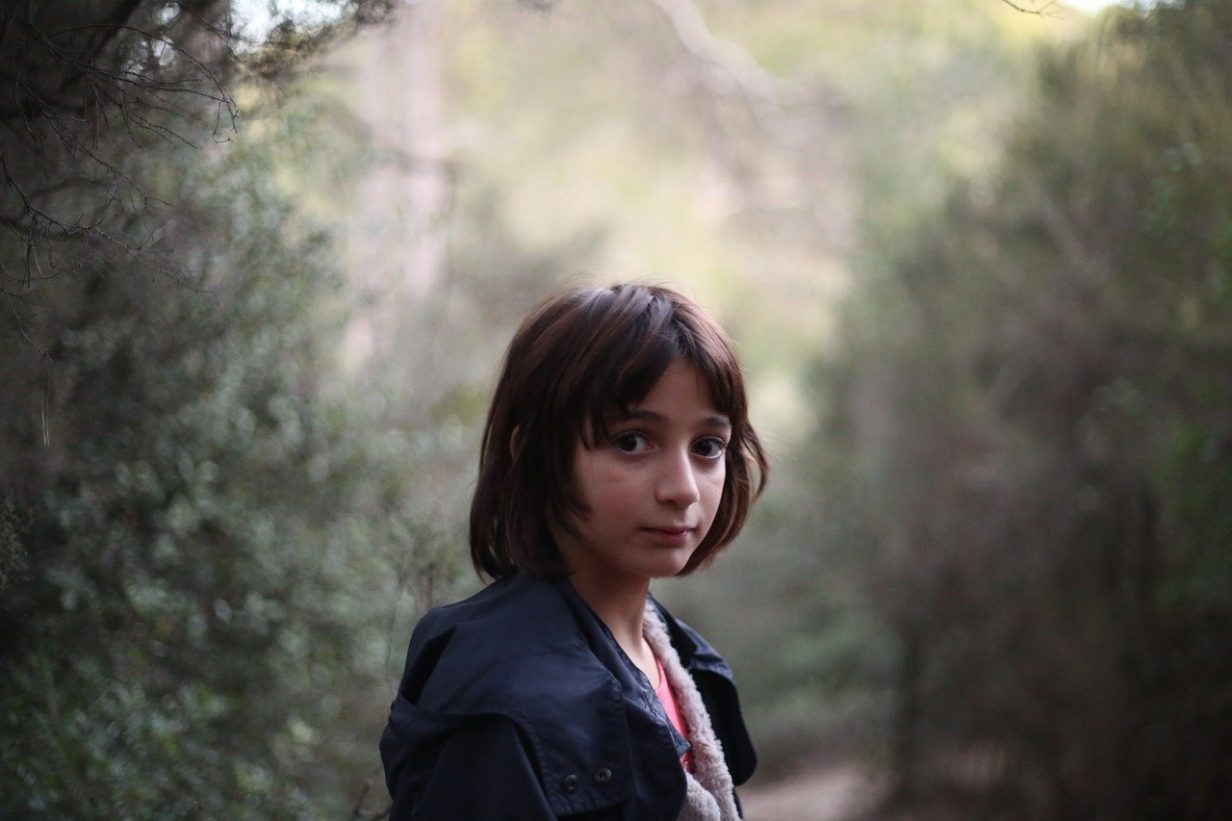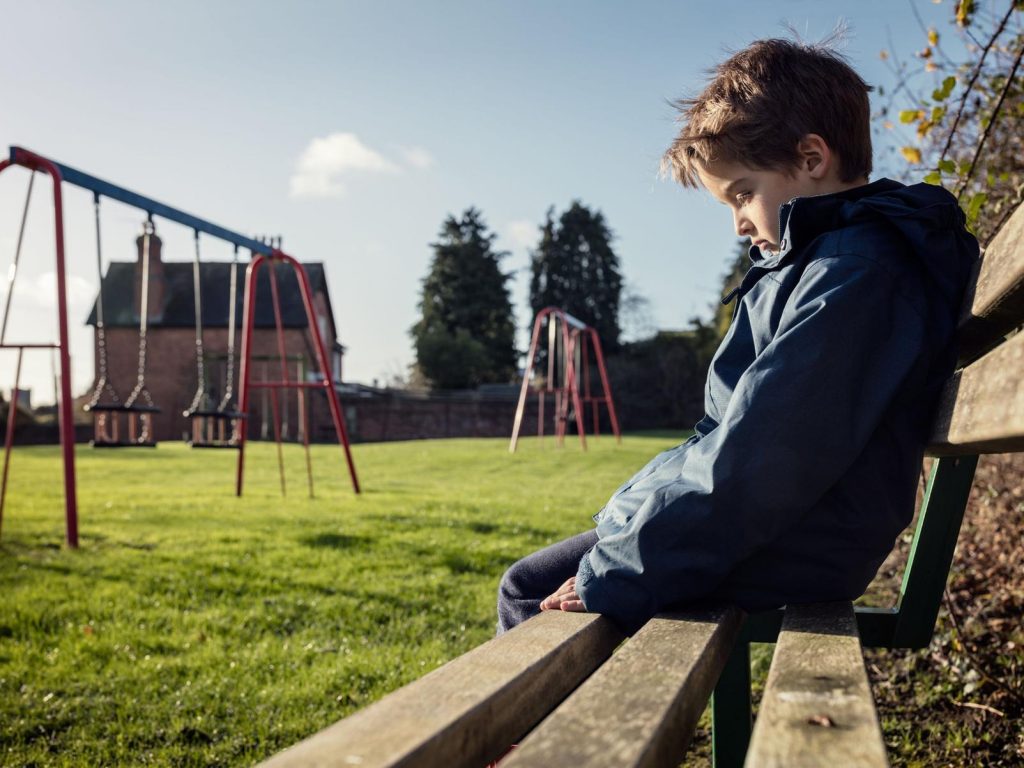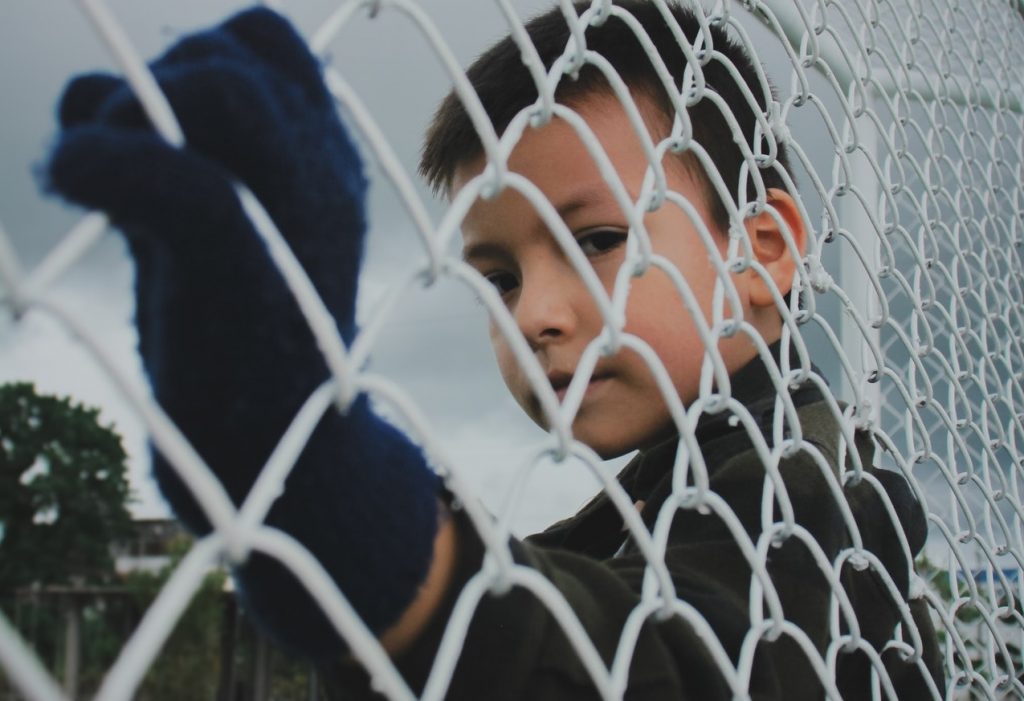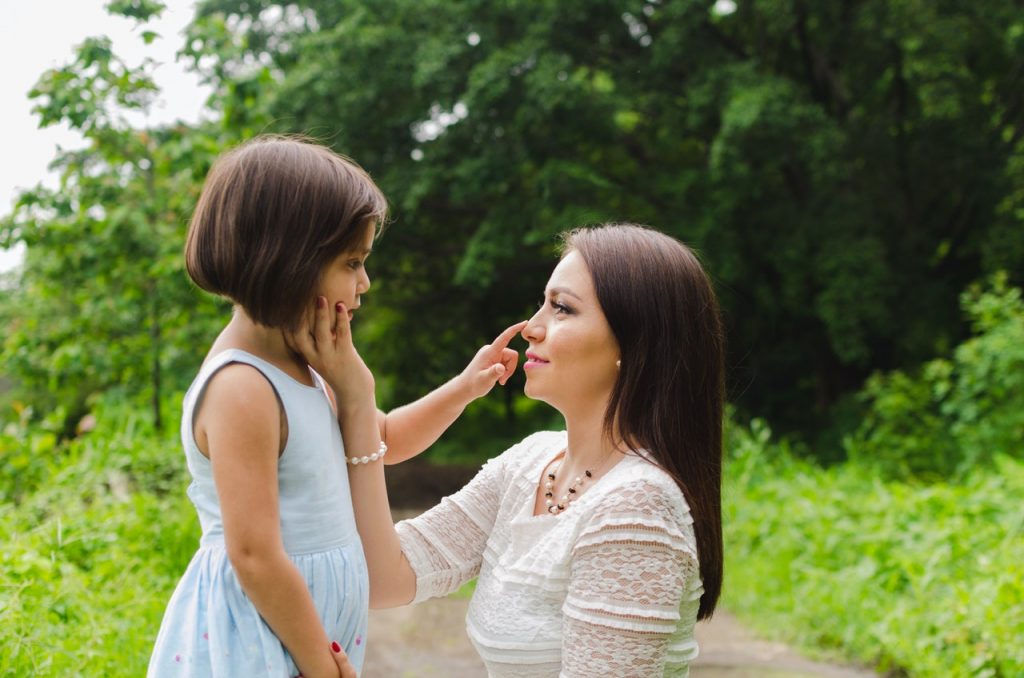How to Help Your Child Make Friends: Parents Helper by the Ages

If your child shows signs of preferred isolation, you may wonder: how to help your child make friends?
Social development is a crucial part of a child’s nature that sets the tone for each age group. Unfortunately, without learning the value of friends or communication, many children grow into adults who live according to their own limitations.
We’ve included general practical tips for parents on how to create the right environment for kids to feel confident to make new friends, and broken down tips by age group so parents know exactly how to help at any given time. As sources for this article, we rely on Lisa Damour Ph. D, Antje Damm, James Lehman Rick Lavoie, and Child Mind Institute research.
Contents:
- Why Your Kid Has a Hard Time Keeping Friends
- What to Do When Your Child Has No Friends
- Tips for Parents
- Keep Uplifting & Inspiring Your Kids
- FAQs
Why Your Kid Has a Hard Time Keeping Friends

Prostock-studio/Shutterstock.com
There are a few reasons why your kid has difficulty keeping friends or making friends in school. In kids, these reasons can range from feeling preoccupied to feeling limited.
Whether you’re concerned about child development, self-regulation, or social skills, understanding why your kid has a hard time keeping friends will only help you learn how to help a child make friends.
Reason 1: Feeling Preoccupied
Preoccupied children develop due to inconsistent parenting from emotionally unpredictable parents. As a result, these children develop anxiety about their relationship with their parents. Quite often, this means they do not believe they are worthy of love.
When a child develops a preoccupied attachment style, they often develop hyperactivity, separation anxiety, explore their world less, and lack resiliency, all of which can hamper their ability to make friends in school or other settings.
As a child grows, the way they approach relationships reflects Preoccupied Attachment. These children develop social skills that make them clingy or needy, which makes keeping friends challenging.
Developing healthy friendships is one of the most important life skills children learn. To help guide your teen through a feeling preoccupied with their thoughts, try reading, Untangled by Lisa Damour Ph. D. For younger children, try reading The Visitor by Antje Damm together to start a conversation about the importance of connecting with others.
Reason 2. Learning difficulties

Prostock-studio/Shutterstock.com
Not all children experience positive relationships with their peer group, particularly children with learning difficulties.
according to Rick Lavoie, M.A., M.Ed, “70 percent of children with learning disabilities report having major difficulty with peers when only 15 percent of non-disabled students experience major difficulty.”
Unfortunately, learning disabilities cause social rejection and friendship issues—even if the child is in a specialized academic program and doing well, their relationships can still suffer. This is particularly true for children and children’s friends who rely on interactions and the approval of others for motivation.
As a parent, it’s crucial to identify this issue and help teachers facilitate a more collaborative environment with collective, positive rewards instead of collective, negative punishment.
Reason 3: Feeling Neglected
Children are quick to assume whatever it is that they think they deserve. If your child subtly feels that they’re getting less attention than a sibling, family member, subject, teacher, or friend, this can instill a belief that they’re deserving of neglect.
A child that’s seemingly happy but secretly feeling neglected will never come to you for help, never turning to you for advice, approval, or very much anything else.
Earlier in life, feelings of neglect can manifest as a disinterest in physical hygiene, and a general reluctance to try new things. Instead of being fascinated with new subjects, toddlers, and preteens who feel neglected show disinterest from the start, withdrawing instead of participating.
Reason 4: Confused
Growing up without feeling secure makes it challenging for children to reach out and connect with people around them or make friends at school. Lacking the ability to connect creates a prevailing sense of confusion, and ultimately, an inability to act or resolve conflicts.
Confusion is a fundamental lack of direction and confidence. When young children find themselves confused, they withdraw and become reclusive. After all, clamming up and staying silent is better than opening up about something you’re uncertain about and being wrong, right?
Reason 5: Disrespected

Prostock-studio/Shutterstock.com
Children who feel disrespected are typically disrespectful to adults, peers, and their group of friends. Younger age groups of kids will find it difficult to socialize if they’re constantly offending those around them, or consumed by their own ego. Vanity is a sign that your child is either being given too much freedom, which leads them to think that they’re undervalued, or too little respect. Tantrums, constant demands, and pickiness regarding eating, fashion, and friends are prevalent.
A disrespected or disrespectful child will often find it difficult to keep friends or make new friends in school. However, a strong parenting approach like setting limits, teaching respect, and adding structure will help change how your child approaches relationships.
Make sure that your child is doing well and is not hiding anything from you. Install the Findmykids app from the AppStore and GooglePlay.
Reason 6: Limitations and Limits
If your child feels that they are being limited by people, and opinions surrounding them, they will recede into a place of perception that lets them create the ‘perfect life’ without friendships.
A lack of friends often simply indicates a lack of subjects or traits to relate to, which is a veritable impossibility.
Children who feel restricted begin acting out from a young age, making it difficult for them to socialize and form a caring group of friends.
Abrasive characteristics start to form with a restricted child normally being hell-bent to get their way when the situation arises. Stubbornness rears its head frequently, and as a result, this makes it hard to bond with others or keep friends.
What to Do When Your Child Has No Friends

Prostock-studio/Shutterstock.com
If you’re wondering how to help your child make friends, there are plenty of things you can do. The first and foremost thing that you need to do as a parent is to make sure that your child has ample opportunities to make friends. Just because they’re struggling to relate in their middle school classroom, this doesn’t mean that they won’t flourish in a different grade, music class, sport, or extra-mural activities.
Don’t force your child to do anything that they’re not comfortable with, but make sure that you’re there, supplying ample opportunities and support all the way.
Here are a few ways that you can help your child make friends.
Toddlers (2-3 years)
- Take your toddler to public play areas and encourage interacting with other kids & friendships
- Network with other parents to create opportunities for social interaction at a young age
- Lessons about communication start at home so make sure that your children see you socializing with your circle of friends and include them in introductions and general group activities
Preschoolers (3-5 years)
- Practice playdate skills that your child will share with other children, acting them out using role-play
- Host frequent playdates to give your child an early opportunity to connect
- Teach your child the rules of commonly played games
Middle Childhood (6-8 years)

Prostock-studio/Shutterstock.com
- Encourage cooperative games, sports, hobbies, and other group activities
- Make sure that your child knows the place and importance of politeness, discussing friends and friendships openly
- Allow your child to sleepover at friends while hosting sleepovers
Are you worried about your child when they are away? Always know where they are and what is happening around them with the Findmykids app from AppStore or GooglePlay.
Child’s 9-11 Years Old
- Avoid competitive games, sports, and hobbies while encouraging those where multiple people work together towards a common goal sharing similar interests
- Coach your children through complex social situations, emphasizing encouragement and guidance instead of instructing them
- Encourage more at-home situations where your kid invites a friend over for games, fun outdoors, crafts, a movie or general playtime
- Find local clubs, classes, or activities that align with their child’s interests to help them make like-minded friend
How to Help Your Teen Make Friends

Prostock-studio/Shutterstock.com
Young Teens (12-14 years)
- Encourage skills development and hobbies that involve social interaction by purchasing the equipment they need (i.e. surfing, skateboarding, biking, cycling)
- Discuss honesty within friendship and communication, while making sure that they know that you’re there supporting the way that they like to interact with others (i.e. social, sport, clubs, academics)
- Include your teen in social activities with you and your friends more frequently
Teenagers (15-17 years)
- Help your teen realize and understand that conflict and conflict resolution is a normal part of relationships and relationship building
- Plan structured activities outside of school to help ease the pressure for your teen while giving them a day of fun with friends (i.e. a movie, followed by their favorite restaurant or a cookout, and then video games at home)
- Assist and support your child in getting used to spending far more time with friends than adults while giving them the freedom needed to explore new things (healthy experimentation is crucial)
Tips for Parents

Prostock-studio/Shutterstock.com
If you’re guiding your child towards healthy social competence and doing your best to help kids make friends, then keep in mind that small steps work best. ‘Exposure therapy’ is the key, but it must be done incrementally.
According to Empowering Parents, you must first understand that you can’t pick your kid’s friends. Criticizing or attacking your child’s friends’ group will only make their bond stronger.
- If your child is shy, then don’t drop them off at a jam-packed outgoing child’s birthday party filled with people. Go get ice cream together at a popular store before stepping things up to gaming at an arcade, or more intimate parties involving a few friends.
- Children should know how long they’re going to be occupied. If you say it’s an hour meet and greet or thirty minutes alone at a playdate then keep your promise and don’t be a minute late.
- Trust is a major factor in guiding your child towards the correct decisions and mindset to thrive socially, so never forsake faith in you as a parent in the lure of anything else.
- It’s not your job to judge your child, nor is it your responsibility to make friends for kids. Keep your comments neutral, relating without criticizing and judging as your kid encounters others.
- Personal opinions can be scarring, so be careful what you say. Speak openly but positively, staying aware of the example that you’re setting for your child with your own social skills.
- Ask your child about their life instead of telling them what it should be. It’s all about talking, doing, and sharing.
- Don’t use love—withholding or withdrawing—as a form of punishment. Instead, encourage your child to seek out mentorship from other adults like a teacher. Helping your child feel secure within their adult relationships is critical in how they develop successful relationships with others.
- If you notice all your child’s pastimes include solo endeavors, it may be time to gently ask questions, discuss strategies with a teacher, or seek out professional advice.
- Seeking out shared or similar interests in other children is another way to help your kid in making friends. Identifying similar interests helps to create connections and shared mutual respect and affection.
- Set actual limits around how much time your kid spends with their friends. This allows your child to go out and find more positive friendships.
- Create boundaries and limits to where your child goes with these friends. Make it part of their schedule to try a new activity where your child can meet other children.
- If your child is disrespectful, evaluate your behavior. Always respond to your child in a respectful manner and hold them responsible for their actions.
Keep Uplifting & Inspiring Your Kids

Prostock-studio/Shutterstock.com
Empowering your child calls upon keen skills of observation, and an ability to reach a point of sharing where the things that you discuss reveal far more than they’re saying directly.
Aversion and isolation are an excuse to allow anxiety to breed depression, lead many children astray from their aspirations and dreams, and result in friendship issues.
Do you help kids make friends? Any bonding advice that could help another family? We encourage you to share your thoughts, insight, and experiences in the comments below.
FAQs
Do you still have questions about how to help your child make friends? Do kids need friends? Keep reading to learn more about the most frequently asked questions parents ask.
How do you help a child who has no friends?
How to help your child make friends? The best way to help your little one make friends is to give your child opportunities to do so. This will depend on age and what your kid is comfortable with but could include encouraging them to join a group, taking them to the park regularly to interact with other kids, arranging regular playdates, or suggesting a sleepover for older children, all of which can help expand their social circle.
Why does my child have a hard time making friends?
There are many reasons that kids can experience friendship issues. For example, naturally introverted children are much more likely to keep themselves to themselves and struggle to initiate conversation or play. A lack of confidence, problems around perceived limitations, social relationships, boundaries, a propensity to play roughly or learning difficulties can also impact a child’s ability to make friends at school or in other settings.
What to do if your child is struggling socially?
The best thing you can do as a parent to help your child, if they are struggling socially, is to ensure they have plenty of opportunities to make new friends and help them develop their friendship skills. Talking about — and modeling — empathy, respect, the importance of patience, understanding, and fairness is a vital way to guide your kid’s social behavior and help them to make friends in school.
How do you solve friendship problems for kids?
Luckily, there are lots of things you can do to help your child if they’re having friendship problems. For example, if your young child is struggling to make friends at a playgroup due to their reluctance to share, this is something you could talk about together, and practice at home with some role play around sharing and everyday conversations. For older kids who are struggling with adjustment to school and making new friends, finding a group or hobby that matches your child’s interests and encouraging them to join in could make a huge difference.
How can I teach my child social skills?
Teaching your child the right social skills will help them to make and keep friends throughout their growth and development:
- Role-play everyday conversations with family members to simulate interactions with other kids. Then, when the time comes to interact, your child will have the basics down.
- Make sure to teach good listening skills. Making lasting friendships is about taking verbal and non-verbal cues from others. Simon Says is a great game to use to teach this skill.
- Learning body language cues is crucial in helping kids make friends. Eye contact and smiling go a long way in showing positive emotions.
What if my child is shy or anxious?
If your child is shy or anxious, they might exhibit a few physical signs, including blushing, sweating, nervousness, and avoiding social interactions.
To help your nervous or shy child, try teaching them social skills, and motivating them through praise. Help kids make friends and meet kids by building self-confidence and setting up playdates. You can also roleplay to ease their nerves, meet their teachers to discuss strategies, or get them involved in a social activity they enjoy.
If you find kids making friends challenging, or your child doesn’t respond to any of the above, consider seeking the help of a trained professional.
How can I help my child deal with rejection?
According to the Child Mind Institute, teaching children about rejection and disappointment is critical. After all, it’s impossible to go through life without feeling either of these emotions.
Here’s how to help your child:
- Validate and offer comfort around the negative experience
- Remind your child that failure is a learning experience
- Tell your child that they can always try again!
- Don’t shelter your child. Focus on problem-solving (which you can always do together).
Проверьте электронный ящик



















